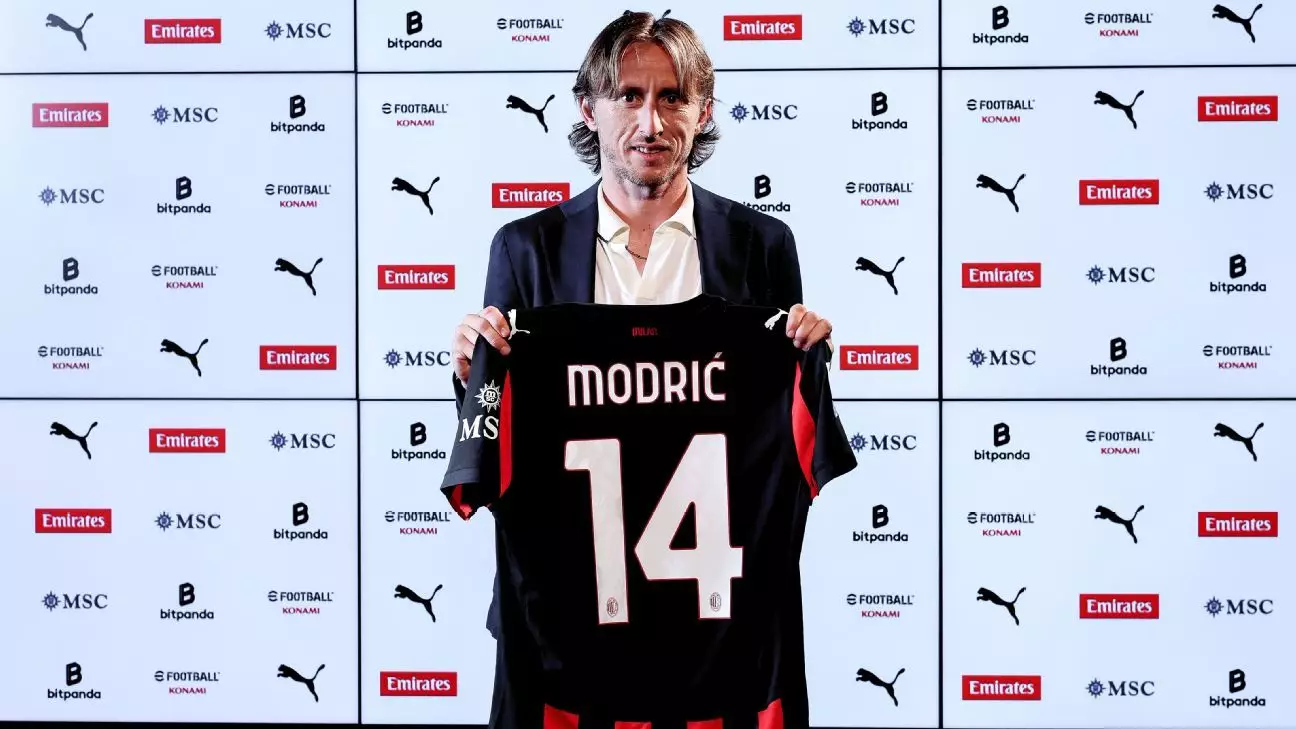Luka Modric’s journey to Milan is more than a career move; it’s a return to his roots, fueled by childhood admiration and cultural nostalgia. Growing up in Croatia, the midfielder idolized Zvonimir Boban, a legendary figure for both Milan and Croatia, whose influence imprinted an enduring legacy on Modric’s footballing aspirations. For Modric, Milan wasn’t just a top European club; it embodied a childhood fantasy, a symbol of excellence and ambition. Now, at 39, he is channeling that passion into a new chapter, aiming to resurrect Milan’s former glory. His decision to join the Rossoneri isn’t merely about continuing his career—it’s a deliberate act of reclaiming a childhood aspiration and challenging himself against modern football’s relentless standards.
A Call for Excellence in a Frustrating Climb
Modric’s arrival signifies a clear message: mediocrity is unacceptable. After spending over a decade at Real Madrid—an environment where winning is second nature—he’s vocally committed to elevating Milan. His statement that the club “needs to have the biggest goals possible” underscores an unwavering desire to restore the club’s competitive edge. Milan’s eighth-place finish last season was not only disappointing but a stark reminder that the club lost its spine. For a player of Modric’s stature, such mediocrity is intolerable. His signing can be viewed as both a tactical addition and a symbolic gesture—one that insists Milan strive for excellence instead of settling for status quo mediocrity. His presence must act as a catalyst, galvanizing the team to break free from complacency and rekindle their hunger for trophies.
The Power of History and Legacy
Modric’s connection to Milan runs deeper than professional ambition; it’s intertwined with cultural identity and personal history. Wearing the No. 14 jersey, once a symbol of his Croatian heroics, Modric intends to bring not just leadership but a reminder of Milan’s legendary past. His admiration for the club’s 1990s dominance is a testament to the power of legacy—what it means to be part of a storied institution. Now, as he moves into his role, he shoulders the weight of that history, aiming to inspire a club and fanbase longing for a return to their former elite status. His signing also underscores the importance of experienced veterans in team building, not merely for their talent but for their ability to inspire resilience and professionalism.
Strategic Ambitions and New Beginnings
Milan’s recent managerial changes, especially the reappointment of Massimiliano Allegri, indicate a strategic shift towards disciplined, results-oriented football. Modric’s influence can’t be overstated—his versatility, tactical intelligence, and calm under pressure are precisely what Milan needs to navigate their rebuilding process. Entering on a one-year contract with an option for a second season, he embodies a bridge between past glories and future ambitions. His desire to stay competitive and relevant in European football aligns with Milan’s quest to reclaim continental relevance. But beyond his individual contributions, Modric’s presence will be a litmus test for Milan’s collective will—whether they are prepared to work relentlessly, as he champions, for a brighter, more successful future.
Challenge and Opportunity in a Legacy-Driven Context
While the signing of a veteran like Modric signals ambition, it also entails significant pressure. Milan’s past glories create a lofty backdrop that can either serve as motivation or a source of crushing expectation. Modric’s independent-minded leadership and work ethic set a high standard—yet, it remains to be seen if Milan’s squad can align with these ideals on the pitch. The challenge lies in transforming the club’s storied history into current, tangible success. Ultimately, Modric’s presence isn’t just about adding experience; it’s about inspiring a culture of excellence and resilience—an imperative for a club that dared to dream big in decades past but has struggled to reclaim that stature in recent seasons.
By embracing his roots and wielding his experience, Luka Modric stands at a crossroads—either to inspire Milan’s revival or to become a poignant symbol of what happens when legacy is not matched with relentless effort. The stage is set, and the spotlight is on Milan’s capacity to reignite their heritage through the leadership of a player who embodies both history and unyielding drive.

